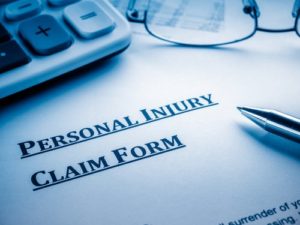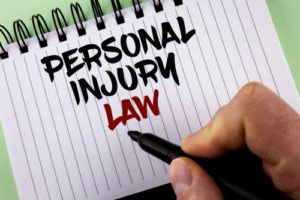
When you go shopping or out to do any other public activity, there is a reasonable expectation of safety and security while at someone else’s facility. There is an expectation that the facility will have adequate security measures to make sure that you are safe. If there are not and you are injured, you may be able to file a lawsuit against the owner of the facility.
There are laws regarding the installation of security features to keep the public safe. Every business is required to have such features in place so that anyone who visits their facility can stay safe. Otherwise, they may be liable for any expenses related to the victim’s injuries or recovery.
If you have been injured in a case involving negligent security, discuss your case with a Daytona Beach negligent security lawyer to see what your legal options are. Contact the offices of Ben Crump Law, PLLC at (844) 730-5111 to discuss your case with our team.
Defining Negligent Security
Businesses are required to have specific security features and systems in place to keep people safe. Negligent security is when a business fails to meet the established security standards. This can lead to injuries because security systems are not adequate in preventing problems.
For example, any business that owns the facility with a parking lot has to install lighting in that parking lot. The lighting must cover enough area to make it safe to pass through. Any parking area that is accessible at night is required to meet the standards. If the company fails to do so and someone enters the parking lot at night, any injuries that that person has can make the company liable.
Although some businesses can fail to provide adequate security for their facilities, other businesses cannot always be held liable for someone’s injuries. It requires a level of negligence on the part of the business owner to be held liable for negligent security problems.
According to Florida Statutes §812.173, there are limitations to being able to file lawsuits against businesses for security issues. For example, convenience businesses must have a video recording system, cash management device, lighted parking lot, height markers, and a cash management policy. Employees must be trained on robbery deterrence. If a company does not comply with these standards, they could be held responsible.
In some places, a business can only be held liable if it knew about the security problems and did nothing about them. To learn more about this type of information regarding your case, consider consulting a Daytona Beach negligent security lawyer who can review the specifics of your case and give you a better understanding of the legal processes to follow. Call Ben Crump Law, PLLC today.
For a free legal consultation with a negligent security lawyer serving Daytona Beach, call (844) 730-5111
Statute of Limitations
In every case, there is a time limit for how long you have to file your lawsuit. This is called the statute of limitations. In Florida, you have a statute of limitations of four years for personal injury claims, as Florida Statutes §95.11 explains. Your case may involve personal injury and property damage claims and possibly some other types of claims depending on what happened.
Daytona Beach Negligent Security Lawyer Near Me (844) 730-5111
Determining Liability
When your lawyer begins to build your case, one of the first things that he or she will do is try to determine liability. Liability is what makes companies financially responsible for any injuries and damages that you suffer. In some cases, it should be the owner of the facility where you are hurt. However, that may not always be the case.
According to Florida Statutes §768.0705, businesses in Florida that comply with the regulations on security systems and premises security may not be sued in negligent security cases. The lawyer wants to review your case before taking legal action. To win your case, your lawyer needs to prove that the facility was negligent in some way. This may take evidence and time to put together.
Click to contact our Daytona Beach Personal Injury Lawyers today
Settlement vs. Trial
Any time you file a civil lawsuit, there is a chance that you will be offered a settlement agreement. You are not required to accept a settlement agreement. If you do not accept it and your lawsuit continues, you could go to trial.
You can renegotiate the settlement agreement that you are offered until you get terms that you like. You risk not being able to negotiate the same amount of compensation that you would receive at trial, but you can negotiate an amount of compensation that covers all of your expenses.
Before you accept a settlement agreement, review it thoroughly with your lawyer. Early settlement agreements may not offer enough compensation to cover all of your related expenses. Renegotiate until the amount of compensation offered meets your needs.
Complete a Free Case Evaluation form now
Possibly Recoverable Damages
There are several types of compensation that you can collect in a negligent security case. These types of compensation include:
- Medical expenses: The costs of treating your injuries can be recovered in the lawsuit. Your lawyer files claims for specific medical expenses, which proves that those expenses are directly related to your injuries.
- Lost wages: If you have to miss work because of your injuries, you can file a claim in your lawsuit.
- Property damage: Any costs related to replacing or repairing your personal property that was damaged in the accident can be claimed in the lawsuit. For example, you could fall and break your cell phone, so you could claim the replacement costs.
There are other types of recoverable compensation not covered on this list. Work with your lawyer to help you identify all of your expenses related to the accident.
Contact Us to Schedule a Consultation
If you have been injured because of negligent security issues, discuss your case with a Daytona Beach negligent security lawyer to see what your legal options are. Call the offices of Ben Crump Law, PLLC at (844) 730-5111 for a free consultation about your case.
Call or text (844) 730-5111 or complete a Free Case Evaluation form








